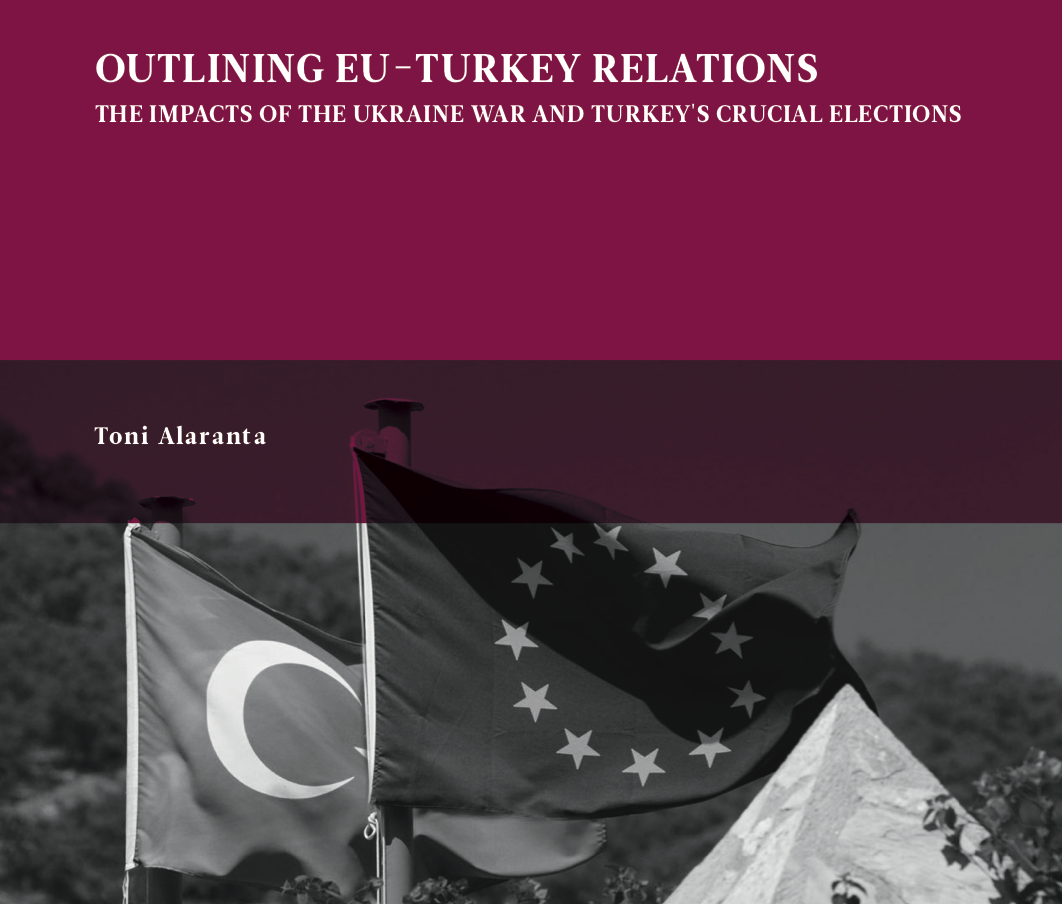ABSTRACT
Turkey-EU relations are affected by Russia’s war on Ukraine and its consequences for the EU’s place in the world.
Another major factor is Turkey’s presidential and parliamentary elections held in May, which are defining the prospects for the country’s democratic future and its foreign policy.
The second round of the presidential election took place on 28 May. The re-election of President Erdoğan indicates that the unilateral foreign policy and strained relationship with the West is likely to continue, although there is a chance of a short-term burst of cooperation due to Turkey’s economic troubles.
There are increasingly divergent views about Turkey in the West, and the EU’s future relationship with Turkey needs to accommodate these different conceptualizations of the country as a state actor.
The EU needs to be flexible in the coming months and to find ways to engage with Turkey in a more fruitful manner, irrespective of the election results.
Outlining EU-Turkey relations: The impacts of the Ukraine war and Turkey’s crucial elections.
Outlining EU-Turkey relations: The impacts of the Ukraine war and Turkey’s crucial elections
INTRODUCTION
Turkey-EU relations have always been afected by var- iables at diferent levels: Turkey, the European Union, their shared neighbourhood, and the global scene. Re- garding the domestic situation in Turkey, the election period clearly energized civil society and the opposition parties in search of a wide democracy platform. On the other hand, the frst round of the presidential election and the ability of the ruling coalition – comprising the Justice and Development Party (AKP) and its ultra- nationalist partner, the Nationalist Movement Party, as well as minor conservative and Islamist parties on their side – to reclaim their parliamentary majority al- ready indicated that incumbent President Erdoğan still has the ability to defne the country’s direction. Tis was indeed confrmed in the run-of. Nevertheless, the elections show that Turkey is standing on a very real threshold in terms of its democratic future.
In the global context, key events shaping EU-Turkey relations historically have included the end of the East- West confict (1989), the 9/11 attacks, the subsequent war on terror and its global political implications (2001), and the so-called Arab Spring (2011) revolutions in the MENA region. Now one can legitimately ask what the implications of the Russian war against Ukraine might be for the EU-Turkey relationship. In recent years, the main obstacle to closer cooperation has been Turkey’s authoritarian development, during which the relation- ship has largely been transactional, focusing on man- aging certain key interdependencies such as trade and refugees. Responding to Russian aggression, EU en- largement in the Western Balkans as well as initial talks about Ukrainian membership have become part of the EU’s foreign policy agenda. Putting all these develop- ments together, it is clear that a lot is at stake regarding the future parameters of EU-Turkey relations.
Tis FIIA Briefng Paper discusses the defning fac- tors of future EU-Turkey relations. It first outlines the current mechanisms at play. After that, Turkey’s position in terms of the Ukraine war and the trans- forming international system is briefy analyzed. Tis is followed by an analysis of the kind of ‘window of opportunity’ that was provided by the election peri- od, the opposition block’s attempt to oust Erdoğan’s competitive authoritarian presidential regime, and the extent to which the opposition shares a group of for- eign policy views with Erdoğan’s government.

